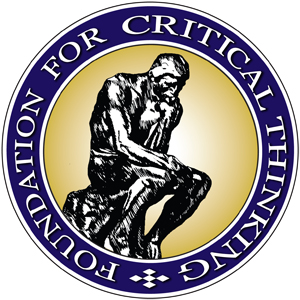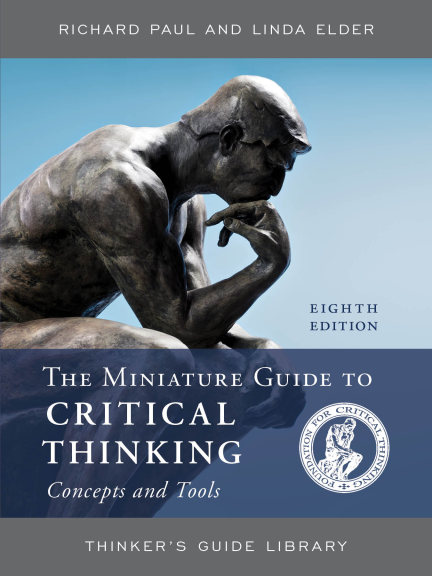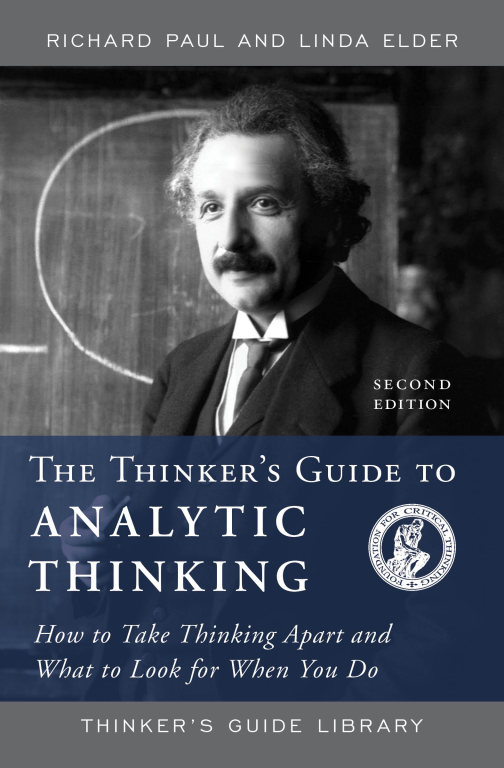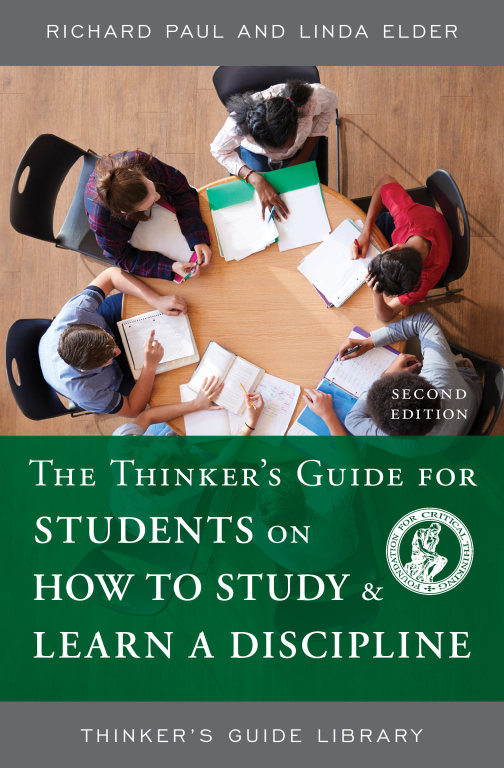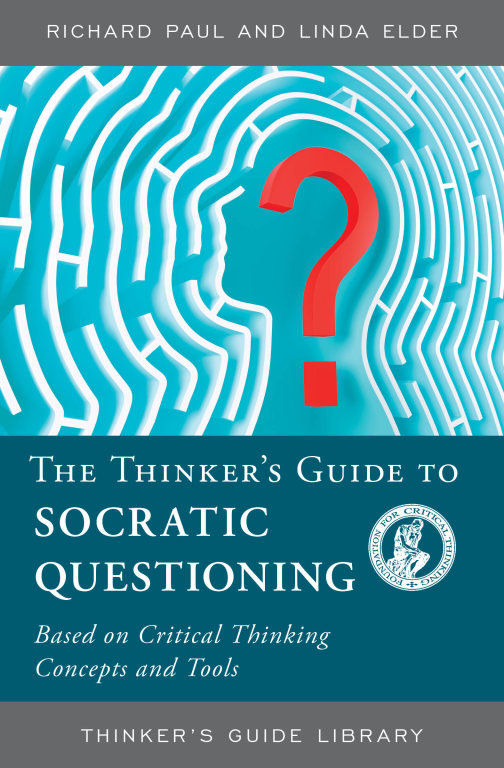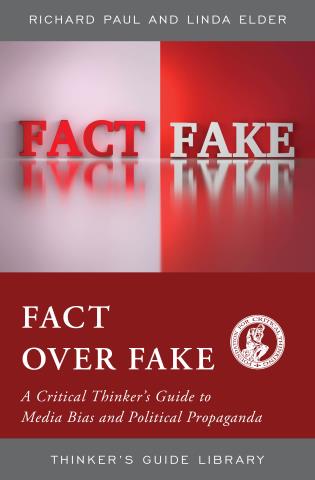
41st Annual International Conference on Critical Thinking
Conference Entirely Online
Registration Closed
Pre-Conference: July 25
Main Conference: July 26 - July 30, 2021
{"id":"5028","title":"","author":"","content":"<p style=\"text-align: center;\"><span style=\"color: #7b4667;\"><em><strong><span style=\"font-size: 18.0pt; line-height: 107%; font-family: "Cooper Black",serif; mso-bidi-font-style: italic;\"><em><strong><span style=\"font-size: 18.0pt; line-height: 107%; font-family: "Cooper Black",serif; mso-bidi-font-style: italic;\"><strong><em><span style=\"font-size: 16.0pt; line-height: 107%;\"><em><strong><span style=\"font-size: 18.0pt; line-height: 107%; font-family: "Cooper Black",serif; mso-bidi-font-style: italic;\"><em><strong><span style=\"font-size: 18.0pt; line-height: 107%; font-family: "Cooper Black",serif; mso-bidi-font-style: italic;\"><strong><em><span style=\"font-size: 16.0pt; line-height: 107%;\"><strong><span style=\"font-size: 18pt; line-height: 107%; font-family: "Cooper Black", serif;\"><strong><span style=\"font-size: 18pt; line-height: 107%; font-family: "Cooper Black", serif;\"><strong><span style=\"font-size: 16pt; line-height: 107%;\"><span style=\"font-size: x-large;\"><strong><span style=\"line-height: 107%; font-family: "Cooper Black", serif;\"><!--[if gte mso 9]><xml> <o:OfficeDocumentSettings> <o:AllowPNG /> </o:OfficeDocumentSettings> </xml><![endif]--><!--[if gte mso 9]><xml> <w:WordDocument> <w:View>Normal</w:View> <w:Zoom>0</w:Zoom> <w:TrackMoves /> <w:TrackFormatting /> <w:PunctuationKerning /> <w:ValidateAgainstSchemas /> <w:SaveIfXMLInvalid>false</w:SaveIfXMLInvalid> <w:IgnoreMixedContent>false</w:IgnoreMixedContent> <w:AlwaysShowPlaceholderText>false</w:AlwaysShowPlaceholderText> <w:DoNotPromoteQF /> <w:LidThemeOther>EN-US</w:LidThemeOther> <w:LidThemeAsian>X-NONE</w:LidThemeAsian> <w:LidThemeComplexScript>X-NONE</w:LidThemeComplexScript> <w:Compatibility> <w:BreakWrappedTables /> <w:SnapToGridInCell /> <w:WrapTextWithPunct /> <w:UseAsianBreakRules /> <w:DontGrowAutofit /> <w:SplitPgBreakAndParaMark /> <w:EnableOpenTypeKerning /> <w:DontFlipMirrorIndents /> <w:OverrideTableStyleHps /> </w:Compatibility> <m:mathPr> <m:mathFont m:val=\"Cambria Math\" /> <m:brkBin m:val=\"before\" /> <m:brkBinSub m:val=\"--\" /> <m:smallFrac m:val=\"off\" /> <m:dispDef /> <m:lMargin m:val=\"0\" /> <m:rMargin m:val=\"0\" /> <m:defJc m:val=\"centerGroup\" /> <m:wrapIndent m:val=\"1440\" /> <m:intLim m:val=\"subSup\" /> <m:naryLim m:val=\"undOvr\" /> </m:mathPr></w:WordDocument> </xml><![endif]--><!--[if gte mso 9]><xml> <w:LatentStyles DefLockedState=\"false\" DefUnhideWhenUsed=\"false\" DefSemiHidden=\"false\" DefQFormat=\"false\" DefPriority=\"99\" LatentStyleCount=\"376\"> <w:LsdException Locked=\"false\" Priority=\"0\" QFormat=\"true\" Name=\"Normal\" /> <w:LsdException Locked=\"false\" Priority=\"9\" QFormat=\"true\" Name=\"heading 1\" /> <w:LsdException Locked=\"false\" Priority=\"9\" SemiHidden=\"true\" UnhideWhenUsed=\"true\" QFormat=\"true\" Name=\"heading 2\" /> <w:LsdException Locked=\"false\" Priority=\"9\" SemiHidden=\"true\" UnhideWhenUsed=\"true\" QFormat=\"true\" Name=\"heading 3\" /> <w:LsdException Locked=\"false\" Priority=\"9\" SemiHidden=\"true\" UnhideWhenUsed=\"true\" QFormat=\"true\" Name=\"heading 4\" /> <w:LsdException Locked=\"false\" Priority=\"9\" SemiHidden=\"true\" UnhideWhenUsed=\"true\" QFormat=\"true\" Name=\"heading 5\" /> <w:LsdException Locked=\"false\" Priority=\"9\" SemiHidden=\"true\" UnhideWhenUsed=\"true\" QFormat=\"true\" Name=\"heading 6\" /> <w:LsdException Locked=\"false\" Priority=\"9\" SemiHidden=\"true\" UnhideWhenUsed=\"true\" QFormat=\"true\" Name=\"heading 7\" /> <w:LsdException Locked=\"false\" Priority=\"9\" SemiHidden=\"true\" UnhideWhenUsed=\"true\" QFormat=\"true\" Name=\"heading 8\" /> <w:LsdException Locked=\"false\" Priority=\"9\" SemiHidden=\"true\" UnhideWhenUsed=\"true\" QFormat=\"true\" Name=\"heading 9\" /> <w:LsdException Locked=\"false\" SemiHidden=\"true\" UnhideWhenUsed=\"true\" Name=\"index 1\" /> <w:LsdException Locked=\"false\" SemiHidden=\"true\" UnhideWhenUsed=\"true\" Name=\"index 2\" /> <w:LsdException Locked=\"false\" SemiHidden=\"true\" UnhideWhenUsed=\"true\" Name=\"index 3\" /> <w:LsdException Locked=\"false\" SemiHidden=\"true\" UnhideWhenUsed=\"true\" Name=\"index 4\" /> <w:LsdException Locked=\"false\" SemiHidden=\"true\" UnhideWhenUsed=\"true\" Name=\"index 5\" /> <w:LsdException Locked=\"false\" SemiHidden=\"true\" UnhideWhenUsed=\"true\" Name=\"index 6\" /> <w:LsdException Locked=\"false\" SemiHidden=\"true\" UnhideWhenUsed=\"true\" Name=\"index 7\" /> <w:LsdException Locked=\"false\" SemiHidden=\"true\" UnhideWhenUsed=\"true\" Name=\"index 8\" /> <w:LsdException Locked=\"false\" SemiHidden=\"true\" UnhideWhenUsed=\"true\" Name=\"index 9\" /> <w:LsdException Locked=\"false\" Priority=\"39\" SemiHidden=\"true\" UnhideWhenUsed=\"true\" Name=\"toc 1\" /> <w:LsdException Locked=\"false\" Priority=\"39\" SemiHidden=\"true\" UnhideWhenUsed=\"true\" Name=\"toc 2\" /> <w:LsdException Locked=\"false\" Priority=\"39\" SemiHidden=\"true\" UnhideWhenUsed=\"true\" Name=\"toc 3\" /> <w:LsdException Locked=\"false\" Priority=\"39\" SemiHidden=\"true\" UnhideWhenUsed=\"true\" Name=\"toc 4\" /> <w:LsdException Locked=\"false\" Priority=\"39\" SemiHidden=\"true\" UnhideWhenUsed=\"true\" Name=\"toc 5\" /> <w:LsdException Locked=\"false\" Priority=\"39\" SemiHidden=\"true\" UnhideWhenUsed=\"true\" Name=\"toc 6\" /> <w:LsdException Locked=\"false\" Priority=\"39\" SemiHidden=\"true\" UnhideWhenUsed=\"true\" Name=\"toc 7\" /> <w:LsdException Locked=\"false\" Priority=\"39\" SemiHidden=\"true\" UnhideWhenUsed=\"true\" Name=\"toc 8\" /> <w:LsdException Locked=\"false\" Priority=\"39\" SemiHidden=\"true\" UnhideWhenUsed=\"true\" Name=\"toc 9\" /> <w:LsdException Locked=\"false\" SemiHidden=\"true\" UnhideWhenUsed=\"true\" Name=\"Normal Indent\" /> <w:LsdException Locked=\"false\" SemiHidden=\"true\" UnhideWhenUsed=\"true\" Name=\"footnote text\" /> <w:LsdException Locked=\"false\" SemiHidden=\"true\" UnhideWhenUsed=\"true\" Name=\"annotation text\" /> <w:LsdException Locked=\"false\" SemiHidden=\"true\" UnhideWhenUsed=\"true\" Name=\"header\" /> <w:LsdException Locked=\"false\" SemiHidden=\"true\" UnhideWhenUsed=\"true\" Name=\"footer\" /> <w:LsdException Locked=\"false\" SemiHidden=\"true\" UnhideWhenUsed=\"true\" Name=\"index heading\" /> <w:LsdException Locked=\"false\" Priority=\"35\" SemiHidden=\"true\" UnhideWhenUsed=\"true\" QFormat=\"true\" Name=\"caption\" /> <w:LsdException Locked=\"false\" SemiHidden=\"true\" UnhideWhenUsed=\"true\" Name=\"table of figures\" /> <w:LsdException Locked=\"false\" SemiHidden=\"true\" UnhideWhenUsed=\"true\" Name=\"envelope address\" /> <w:LsdException Locked=\"false\" SemiHidden=\"true\" UnhideWhenUsed=\"true\" Name=\"envelope return\" /> <w:LsdException Locked=\"false\" SemiHidden=\"true\" UnhideWhenUsed=\"true\" Name=\"footnote reference\" /> <w:LsdException Locked=\"false\" SemiHidden=\"true\" UnhideWhenUsed=\"true\" Name=\"annotation reference\" /> <w:LsdException Locked=\"false\" SemiHidden=\"true\" UnhideWhenUsed=\"true\" Name=\"line number\" /> <w:LsdException Locked=\"false\" SemiHidden=\"true\" UnhideWhenUsed=\"true\" Name=\"page number\" /> <w:LsdException Locked=\"false\" SemiHidden=\"true\" UnhideWhenUsed=\"true\" Name=\"endnote reference\" /> <w:LsdException Locked=\"false\" SemiHidden=\"true\" UnhideWhenUsed=\"true\" Name=\"endnote text\" /> <w:LsdException Locked=\"false\" SemiHidden=\"true\" UnhideWhenUsed=\"true\" Name=\"table of authorities\" /> <w:LsdException Locked=\"false\" SemiHidden=\"true\" UnhideWhenUsed=\"true\" Name=\"macro\" /> <w:LsdException Locked=\"false\" SemiHidden=\"true\" UnhideWhenUsed=\"true\" Name=\"toa heading\" /> <w:LsdException Locked=\"false\" SemiHidden=\"true\" UnhideWhenUsed=\"true\" Name=\"List\" /> <w:LsdException Locked=\"false\" SemiHidden=\"true\" UnhideWhenUsed=\"true\" Name=\"List Bullet\" /> <w:LsdException Locked=\"false\" SemiHidden=\"true\" UnhideWhenUsed=\"true\" Name=\"List Number\" /> <w:LsdException Locked=\"false\" SemiHidden=\"true\" UnhideWhenUsed=\"true\" Name=\"List 2\" /> <w:LsdException Locked=\"false\" SemiHidden=\"true\" UnhideWhenUsed=\"true\" Name=\"List 3\" /> <w:LsdException Locked=\"false\" SemiHidden=\"true\" UnhideWhenUsed=\"true\" Name=\"List 4\" /> <w:LsdException Locked=\"false\" SemiHidden=\"true\" UnhideWhenUsed=\"true\" Name=\"List 5\" /> <w:LsdException Locked=\"false\" SemiHidden=\"true\" UnhideWhenUsed=\"true\" Name=\"List Bullet 2\" /> <w:LsdException Locked=\"false\" SemiHidden=\"true\" UnhideWhenUsed=\"true\" Name=\"List Bullet 3\" /> <w:LsdException Locked=\"false\" SemiHidden=\"true\" UnhideWhenUsed=\"true\" Name=\"List Bullet 4\" /> <w:LsdException Locked=\"false\" SemiHidden=\"true\" UnhideWhenUsed=\"true\" Name=\"List Bullet 5\" /> <w:LsdException Locked=\"false\" SemiHidden=\"true\" UnhideWhenUsed=\"true\" Name=\"List Number 2\" /> <w:LsdException Locked=\"false\" SemiHidden=\"true\" UnhideWhenUsed=\"true\" Name=\"List Number 3\" /> <w:LsdException Locked=\"false\" SemiHidden=\"true\" UnhideWhenUsed=\"true\" Name=\"List Number 4\" /> <w:LsdException Locked=\"false\" SemiHidden=\"true\" UnhideWhenUsed=\"true\" Name=\"List Number 5\" /> <w:LsdException Locked=\"false\" Priority=\"10\" QFormat=\"true\" Name=\"Title\" /> <w:LsdException Locked=\"false\" SemiHidden=\"true\" UnhideWhenUsed=\"true\" Name=\"Closing\" /> <w:LsdException Locked=\"false\" SemiHidden=\"true\" UnhideWhenUsed=\"true\" Name=\"Signature\" /> <w:LsdException Locked=\"false\" Priority=\"1\" SemiHidden=\"true\" UnhideWhenUsed=\"true\" Name=\"Default Paragraph Font\" /> <w:LsdException Locked=\"false\" SemiHidden=\"true\" UnhideWhenUsed=\"true\" Name=\"Body Text\" /> <w:LsdException Locked=\"false\" SemiHidden=\"true\" UnhideWhenUsed=\"true\" Name=\"Body Text Indent\" /> <w:LsdException Locked=\"false\" SemiHidden=\"true\" UnhideWhenUsed=\"true\" Name=\"List Continue\" /> <w:LsdException Locked=\"false\" SemiHidden=\"true\" UnhideWhenUsed=\"true\" Name=\"List Continue 2\" /> <w:LsdException Locked=\"false\" SemiHidden=\"true\" UnhideWhenUsed=\"true\" Name=\"List Continue 3\" /> <w:LsdException Locked=\"false\" SemiHidden=\"true\" UnhideWhenUsed=\"true\" Name=\"List Continue 4\" /> <w:LsdException Locked=\"false\" SemiHidden=\"true\" UnhideWhenUsed=\"true\" Name=\"List Continue 5\" /> <w:LsdException Locked=\"false\" SemiHidden=\"true\" UnhideWhenUsed=\"true\" Name=\"Message Header\" /> <w:LsdException Locked=\"false\" Priority=\"11\" QFormat=\"true\" Name=\"Subtitle\" /> <w:LsdException Locked=\"false\" SemiHidden=\"true\" UnhideWhenUsed=\"true\" Name=\"Salutation\" /> <w:LsdException Locked=\"false\" SemiHidden=\"true\" UnhideWhenUsed=\"true\" Name=\"Date\" /> <w:LsdException Locked=\"false\" SemiHidden=\"true\" UnhideWhenUsed=\"true\" Name=\"Body Text First Indent\" /> <w:LsdException Locked=\"false\" SemiHidden=\"true\" UnhideWhenUsed=\"true\" Name=\"Body Text First Indent 2\" /> <w:LsdException Locked=\"false\" SemiHidden=\"true\" UnhideWhenUsed=\"true\" Name=\"Note Heading\" /> <w:LsdException Locked=\"false\" SemiHidden=\"true\" UnhideWhenUsed=\"true\" Name=\"Body Text 2\" /> <w:LsdException Locked=\"false\" SemiHidden=\"true\" UnhideWhenUsed=\"true\" Name=\"Body Text 3\" /> <w:LsdException Locked=\"false\" SemiHidden=\"true\" UnhideWhenUsed=\"true\" Name=\"Body Text Indent 2\" /> <w:LsdException Locked=\"false\" SemiHidden=\"true\" UnhideWhenUsed=\"true\" Name=\"Body Text Indent 3\" /> <w:LsdException Locked=\"false\" SemiHidden=\"true\" UnhideWhenUsed=\"true\" Name=\"Block Text\" /> <w:LsdException Locked=\"false\" SemiHidden=\"true\" UnhideWhenUsed=\"true\" Name=\"Hyperlink\" /> <w:LsdException Locked=\"false\" SemiHidden=\"true\" UnhideWhenUsed=\"true\" Name=\"FollowedHyperlink\" /> <w:LsdException Locked=\"false\" Priority=\"22\" QFormat=\"true\" Name=\"Strong\" /> <w:LsdException Locked=\"false\" Priority=\"20\" QFormat=\"true\" Name=\"Emphasis\" /> <w:LsdException Locked=\"false\" SemiHidden=\"true\" UnhideWhenUsed=\"true\" Name=\"Document Map\" /> <w:LsdException Locked=\"false\" SemiHidden=\"true\" UnhideWhenUsed=\"true\" Name=\"Plain Text\" /> <w:LsdException Locked=\"false\" SemiHidden=\"true\" UnhideWhenUsed=\"true\" Name=\"E-mail Signature\" /> <w:LsdException Locked=\"false\" SemiHidden=\"true\" UnhideWhenUsed=\"true\" Name=\"HTML Top of Form\" /> <w:LsdException Locked=\"false\" SemiHidden=\"true\" UnhideWhenUsed=\"true\" Name=\"HTML Bottom of Form\" /> <w:LsdException Locked=\"false\" SemiHidden=\"true\" UnhideWhenUsed=\"true\" Name=\"Normal (Web)\" /> <w:LsdException Locked=\"false\" SemiHidden=\"true\" UnhideWhenUsed=\"true\" Name=\"HTML Acronym\" /> <w:LsdException Locked=\"false\" SemiHidden=\"true\" UnhideWhenUsed=\"true\" Name=\"HTML Address\" /> <w:LsdException Locked=\"false\" SemiHidden=\"true\" UnhideWhenUsed=\"true\" Name=\"HTML Cite\" /> <w:LsdException Locked=\"false\" SemiHidden=\"true\" UnhideWhenUsed=\"true\" Name=\"HTML Code\" /> <w:LsdException Locked=\"false\" SemiHidden=\"true\" UnhideWhenUsed=\"true\" Name=\"HTML Definition\" /> <w:LsdException Locked=\"false\" SemiHidden=\"true\" UnhideWhenUsed=\"true\" Name=\"HTML Keyboard\" /> <w:LsdException Locked=\"false\" SemiHidden=\"true\" UnhideWhenUsed=\"true\" Name=\"HTML Preformatted\" /> <w:LsdException Locked=\"false\" SemiHidden=\"true\" UnhideWhenUsed=\"true\" Name=\"HTML Sample\" /> <w:LsdException Locked=\"false\" SemiHidden=\"true\" UnhideWhenUsed=\"true\" Name=\"HTML Typewriter\" /> <w:LsdException Locked=\"false\" SemiHidden=\"true\" UnhideWhenUsed=\"true\" Name=\"HTML Variable\" /> <w:LsdException Locked=\"false\" SemiHidden=\"true\" UnhideWhenUsed=\"true\" Name=\"Normal Table\" /> <w:LsdException Locked=\"false\" SemiHidden=\"true\" UnhideWhenUsed=\"true\" Name=\"annotation subject\" /> <w:LsdException Locked=\"false\" SemiHidden=\"true\" UnhideWhenUsed=\"true\" Name=\"No List\" /> <w:LsdException Locked=\"false\" SemiHidden=\"true\" UnhideWhenUsed=\"true\" Name=\"Outline List 1\" /> <w:LsdException Locked=\"false\" SemiHidden=\"true\" UnhideWhenUsed=\"true\" Name=\"Outline List 2\" /> <w:LsdException Locked=\"false\" SemiHidden=\"true\" UnhideWhenUsed=\"true\" Name=\"Outline List 3\" /> <w:LsdException Locked=\"false\" SemiHidden=\"true\" UnhideWhenUsed=\"true\" Name=\"Table Simple 1\" /> <w:LsdException Locked=\"false\" SemiHidden=\"true\" UnhideWhenUsed=\"true\" Name=\"Table Simple 2\" /> <w:LsdException Locked=\"false\" SemiHidden=\"true\" UnhideWhenUsed=\"true\" Name=\"Table Simple 3\" /> <w:LsdException Locked=\"false\" SemiHidden=\"true\" UnhideWhenUsed=\"true\" Name=\"Table Classic 1\" /> <w:LsdException Locked=\"false\" SemiHidden=\"true\" UnhideWhenUsed=\"true\" Name=\"Table Classic 2\" /> <w:LsdException Locked=\"false\" SemiHidden=\"true\" UnhideWhenUsed=\"true\" Name=\"Table Classic 3\" /> <w:LsdException Locked=\"false\" SemiHidden=\"true\" UnhideWhenUsed=\"true\" Name=\"Table Classic 4\" /> <w:LsdException Locked=\"false\" SemiHidden=\"true\" UnhideWhenUsed=\"true\" Name=\"Table Colorful 1\" /> <w:LsdException Locked=\"false\" SemiHidden=\"true\" UnhideWhenUsed=\"true\" Name=\"Table Colorful 2\" /> <w:LsdException Locked=\"false\" SemiHidden=\"true\" UnhideWhenUsed=\"true\" Name=\"Table Colorful 3\" /> <w:LsdException Locked=\"false\" SemiHidden=\"true\" UnhideWhenUsed=\"true\" Name=\"Table Columns 1\" /> <w:LsdException Locked=\"false\" SemiHidden=\"true\" UnhideWhenUsed=\"true\" Name=\"Table Columns 2\" /> <w:LsdException Locked=\"false\" SemiHidden=\"true\" UnhideWhenUsed=\"true\" Name=\"Table Columns 3\" /> <w:LsdException Locked=\"false\" SemiHidden=\"true\" UnhideWhenUsed=\"true\" Name=\"Table Columns 4\" /> <w:LsdException Locked=\"false\" SemiHidden=\"true\" UnhideWhenUsed=\"true\" Name=\"Table Columns 5\" /> <w:LsdException Locked=\"false\" SemiHidden=\"true\" UnhideWhenUsed=\"true\" Name=\"Table Grid 1\" /> <w:LsdException Locked=\"false\" SemiHidden=\"true\" UnhideWhenUsed=\"true\" Name=\"Table Grid 2\" /> <w:LsdException Locked=\"false\" SemiHidden=\"true\" UnhideWhenUsed=\"true\" Name=\"Table Grid 3\" /> <w:LsdException Locked=\"false\" SemiHidden=\"true\" UnhideWhenUsed=\"true\" Name=\"Table Grid 4\" /> <w:LsdException Locked=\"false\" SemiHidden=\"true\" UnhideWhenUsed=\"true\" Name=\"Table Grid 5\" /> <w:LsdException Locked=\"false\" SemiHidden=\"true\" UnhideWhenUsed=\"true\" Name=\"Table Grid 6\" /> <w:LsdException Locked=\"false\" SemiHidden=\"true\" UnhideWhenUsed=\"true\" Name=\"Table Grid 7\" /> <w:LsdException Locked=\"false\" SemiHidden=\"true\" UnhideWhenUsed=\"true\" Name=\"Table Grid 8\" /> <w:LsdException Locked=\"false\" SemiHidden=\"true\" UnhideWhenUsed=\"true\" Name=\"Table List 1\" /> <w:LsdException Locked=\"false\" SemiHidden=\"true\" UnhideWhenUsed=\"true\" Name=\"Table List 2\" /> <w:LsdException Locked=\"false\" SemiHidden=\"true\" UnhideWhenUsed=\"true\" Name=\"Table List 3\" /> <w:LsdException Locked=\"false\" SemiHidden=\"true\" UnhideWhenUsed=\"true\" Name=\"Table List 4\" /> <w:LsdException Locked=\"false\" SemiHidden=\"true\" UnhideWhenUsed=\"true\" Name=\"Table List 5\" /> <w:LsdException Locked=\"false\" SemiHidden=\"true\" UnhideWhenUsed=\"true\" Name=\"Table List 6\" /> <w:LsdException Locked=\"false\" SemiHidden=\"true\" UnhideWhenUsed=\"true\" Name=\"Table List 7\" /> <w:LsdException Locked=\"false\" SemiHidden=\"true\" UnhideWhenUsed=\"true\" Name=\"Table List 8\" /> <w:LsdException Locked=\"false\" SemiHidden=\"true\" UnhideWhenUsed=\"true\" Name=\"Table 3D effects 1\" /> <w:LsdException Locked=\"false\" SemiHidden=\"true\" UnhideWhenUsed=\"true\" Name=\"Table 3D effects 2\" /> <w:LsdException Locked=\"false\" SemiHidden=\"true\" UnhideWhenUsed=\"true\" Name=\"Table 3D effects 3\" /> <w:LsdException Locked=\"false\" SemiHidden=\"true\" UnhideWhenUsed=\"true\" Name=\"Table Contemporary\" /> <w:LsdException Locked=\"false\" SemiHidden=\"true\" UnhideWhenUsed=\"true\" Name=\"Table Elegant\" /> <w:LsdException Locked=\"false\" SemiHidden=\"true\" UnhideWhenUsed=\"true\" Name=\"Table Professional\" /> <w:LsdException Locked=\"false\" SemiHidden=\"true\" UnhideWhenUsed=\"true\" Name=\"Table Subtle 1\" /> <w:LsdException Locked=\"false\" SemiHidden=\"true\" UnhideWhenUsed=\"true\" Name=\"Table Subtle 2\" /> <w:LsdException Locked=\"false\" SemiHidden=\"true\" UnhideWhenUsed=\"true\" Name=\"Table Web 1\" /> <w:LsdException Locked=\"false\" SemiHidden=\"true\" UnhideWhenUsed=\"true\" Name=\"Table Web 2\" /> <w:LsdException Locked=\"false\" SemiHidden=\"true\" UnhideWhenUsed=\"true\" Name=\"Table Web 3\" /> <w:LsdException Locked=\"false\" SemiHidden=\"true\" UnhideWhenUsed=\"true\" Name=\"Balloon Text\" /> <w:LsdException Locked=\"false\" Priority=\"39\" Name=\"Table Grid\" /> <w:LsdException Locked=\"false\" SemiHidden=\"true\" UnhideWhenUsed=\"true\" Name=\"Table Theme\" /> <w:LsdException Locked=\"false\" SemiHidden=\"true\" Name=\"Placeholder Text\" /> <w:LsdException Locked=\"false\" Priority=\"1\" QFormat=\"true\" Name=\"No Spacing\" /> <w:LsdException Locked=\"false\" Priority=\"60\" Name=\"Light Shading\" /> <w:LsdException Locked=\"false\" Priority=\"61\" Name=\"Light List\" /> <w:LsdException Locked=\"false\" Priority=\"62\" Name=\"Light Grid\" /> <w:LsdException Locked=\"false\" Priority=\"63\" Name=\"Medium Shading 1\" /> <w:LsdException Locked=\"false\" Priority=\"64\" Name=\"Medium Shading 2\" /> <w:LsdException Locked=\"false\" Priority=\"65\" Name=\"Medium List 1\" /> <w:LsdException Locked=\"false\" Priority=\"66\" Name=\"Medium List 2\" /> <w:LsdException Locked=\"false\" Priority=\"67\" Name=\"Medium Grid 1\" /> <w:LsdException Locked=\"false\" Priority=\"68\" Name=\"Medium Grid 2\" /> <w:LsdException Locked=\"false\" Priority=\"69\" Name=\"Medium Grid 3\" /> <w:LsdException Locked=\"false\" Priority=\"70\" Name=\"Dark List\" /> <w:LsdException Locked=\"false\" Priority=\"71\" Name=\"Colorful Shading\" /> <w:LsdException Locked=\"false\" Priority=\"72\" Name=\"Colorful List\" /> <w:LsdException Locked=\"false\" Priority=\"73\" Name=\"Colorful Grid\" /> <w:LsdException Locked=\"false\" Priority=\"60\" Name=\"Light Shading Accent 1\" /> <w:LsdException Locked=\"false\" Priority=\"61\" Name=\"Light List Accent 1\" /> <w:LsdException Locked=\"false\" Priority=\"62\" Name=\"Light Grid Accent 1\" /> <w:LsdException Locked=\"false\" Priority=\"63\" Name=\"Medium Shading 1 Accent 1\" /> <w:LsdException Locked=\"false\" Priority=\"64\" Name=\"Medium Shading 2 Accent 1\" /> <w:LsdException Locked=\"false\" Priority=\"65\" Name=\"Medium List 1 Accent 1\" /> <w:LsdException Locked=\"false\" SemiHidden=\"true\" Name=\"Revision\" /> <w:LsdException Locked=\"false\" Priority=\"34\" QFormat=\"true\" Name=\"List Paragraph\" /> <w:LsdException Locked=\"false\" Priority=\"29\" QFormat=\"true\" Name=\"Quote\" /> <w:LsdException Locked=\"false\" Priority=\"30\" QFormat=\"true\" Name=\"Intense Quote\" /> <w:LsdException Locked=\"false\" Priority=\"66\" Name=\"Medium List 2 Accent 1\" /> <w:LsdException Locked=\"false\" Priority=\"67\" Name=\"Medium Grid 1 Accent 1\" /> <w:LsdException Locked=\"false\" Priority=\"68\" Name=\"Medium Grid 2 Accent 1\" /> <w:LsdException Locked=\"false\" Priority=\"69\" Name=\"Medium Grid 3 Accent 1\" /> <w:LsdException Locked=\"false\" Priority=\"70\" Name=\"Dark List Accent 1\" /> <w:LsdException Locked=\"false\" Priority=\"71\" Name=\"Colorful Shading Accent 1\" /> <w:LsdException Locked=\"false\" Priority=\"72\" Name=\"Colorful List Accent 1\" /> <w:LsdException Locked=\"false\" Priority=\"73\" Name=\"Colorful Grid Accent 1\" /> <w:LsdException Locked=\"false\" Priority=\"60\" Name=\"Light Shading Accent 2\" /> <w:LsdException Locked=\"false\" Priority=\"61\" Name=\"Light List Accent 2\" /> <w:LsdException Locked=\"false\" Priority=\"62\" Name=\"Light Grid Accent 2\" /> <w:LsdException Locked=\"false\" Priority=\"63\" Name=\"Medium Shading 1 Accent 2\" /> <w:LsdException Locked=\"false\" Priority=\"64\" Name=\"Medium Shading 2 Accent 2\" /> <w:LsdException Locked=\"false\" Priority=\"65\" Name=\"Medium List 1 Accent 2\" /> <w:LsdException Locked=\"false\" Priority=\"66\" Name=\"Medium List 2 Accent 2\" /> <w:LsdException Locked=\"false\" Priority=\"67\" Name=\"Medium Grid 1 Accent 2\" /> <w:LsdException Locked=\"false\" Priority=\"68\" Name=\"Medium Grid 2 Accent 2\" /> <w:LsdException Locked=\"false\" Priority=\"69\" Name=\"Medium Grid 3 Accent 2\" /> <w:LsdException Locked=\"false\" Priority=\"70\" Name=\"Dark List Accent 2\" /> <w:LsdException Locked=\"false\" Priority=\"71\" Name=\"Colorful Shading Accent 2\" /> <w:LsdException Locked=\"false\" Priority=\"72\" Name=\"Colorful List Accent 2\" /> <w:LsdException Locked=\"false\" Priority=\"73\" Name=\"Colorful Grid Accent 2\" /> <w:LsdException Locked=\"false\" Priority=\"60\" Name=\"Light Shading Accent 3\" /> <w:LsdException Locked=\"false\" Priority=\"61\" Name=\"Light List Accent 3\" /> <w:LsdException Locked=\"false\" Priority=\"62\" Name=\"Light Grid Accent 3\" /> <w:LsdException Locked=\"false\" Priority=\"63\" Name=\"Medium Shading 1 Accent 3\" /> <w:LsdException Locked=\"false\" Priority=\"64\" Name=\"Medium Shading 2 Accent 3\" /> <w:LsdException Locked=\"false\" Priority=\"65\" Name=\"Medium List 1 Accent 3\" /> <w:LsdException Locked=\"false\" Priority=\"66\" Name=\"Medium List 2 Accent 3\" /> <w:LsdException Locked=\"false\" Priority=\"67\" Name=\"Medium Grid 1 Accent 3\" /> <w:LsdException Locked=\"false\" Priority=\"68\" Name=\"Medium Grid 2 Accent 3\" /> <w:LsdException Locked=\"false\" Priority=\"69\" Name=\"Medium Grid 3 Accent 3\" /> <w:LsdException Locked=\"false\" Priority=\"70\" Name=\"Dark List Accent 3\" /> <w:LsdException Locked=\"false\" Priority=\"71\" Name=\"Colorful Shading Accent 3\" /> <w:LsdException Locked=\"false\" Priority=\"72\" Name=\"Colorful List Accent 3\" /> <w:LsdException Locked=\"false\" Priority=\"73\" Name=\"Colorful Grid Accent 3\" /> <w:LsdException Locked=\"false\" Priority=\"60\" Name=\"Light Shading Accent 4\" /> <w:LsdException Locked=\"false\" Priority=\"61\" Name=\"Light List Accent 4\" /> <w:LsdException Locked=\"false\" Priority=\"62\" Name=\"Light Grid Accent 4\" /> <w:LsdException Locked=\"false\" Priority=\"63\" Name=\"Medium Shading 1 Accent 4\" /> <w:LsdException Locked=\"false\" Priority=\"64\" Name=\"Medium Shading 2 Accent 4\" /> <w:LsdException Locked=\"false\" Priority=\"65\" Name=\"Medium List 1 Accent 4\" /> <w:LsdException Locked=\"false\" Priority=\"66\" Name=\"Medium List 2 Accent 4\" /> <w:LsdException Locked=\"false\" Priority=\"67\" Name=\"Medium Grid 1 Accent 4\" /> <w:LsdException Locked=\"false\" Priority=\"68\" Name=\"Medium Grid 2 Accent 4\" /> <w:LsdException Locked=\"false\" Priority=\"69\" Name=\"Medium Grid 3 Accent 4\" /> <w:LsdException Locked=\"false\" Priority=\"70\" Name=\"Dark List Accent 4\" /> <w:LsdException Locked=\"false\" Priority=\"71\" Name=\"Colorful Shading Accent 4\" /> <w:LsdException Locked=\"false\" Priority=\"72\" Name=\"Colorful List Accent 4\" /> <w:LsdException Locked=\"false\" Priority=\"73\" Name=\"Colorful Grid Accent 4\" /> <w:LsdException Locked=\"false\" Priority=\"60\" Name=\"Light Shading Accent 5\" /> <w:LsdException Locked=\"false\" Priority=\"61\" Name=\"Light List Accent 5\" /> <w:LsdException Locked=\"false\" Priority=\"62\" Name=\"Light Grid Accent 5\" /> <w:LsdException Locked=\"false\" Priority=\"63\" Name=\"Medium Shading 1 Accent 5\" /> <w:LsdException Locked=\"false\" Priority=\"64\" Name=\"Medium Shading 2 Accent 5\" /> <w:LsdException Locked=\"false\" Priority=\"65\" Name=\"Medium List 1 Accent 5\" /> <w:LsdException Locked=\"false\" Priority=\"66\" Name=\"Medium List 2 Accent 5\" /> <w:LsdException Locked=\"false\" Priority=\"67\" Name=\"Medium Grid 1 Accent 5\" /> <w:LsdException Locked=\"false\" Priority=\"68\" Name=\"Medium Grid 2 Accent 5\" /> <w:LsdException Locked=\"false\" Priority=\"69\" Name=\"Medium Grid 3 Accent 5\" /> <w:LsdException Locked=\"false\" Priority=\"70\" Name=\"Dark List Accent 5\" /> <w:LsdException Locked=\"false\" Priority=\"71\" Name=\"Colorful Shading Accent 5\" /> <w:LsdException Locked=\"false\" Priority=\"72\" Name=\"Colorful List Accent 5\" /> <w:LsdException Locked=\"false\" Priority=\"73\" Name=\"Colorful Grid Accent 5\" /> <w:LsdException Locked=\"false\" Priority=\"60\" Name=\"Light Shading Accent 6\" /> <w:LsdException Locked=\"false\" Priority=\"61\" Name=\"Light List Accent 6\" /> <w:LsdException Locked=\"false\" Priority=\"62\" Name=\"Light Grid Accent 6\" /> <w:LsdException Locked=\"false\" Priority=\"63\" Name=\"Medium Shading 1 Accent 6\" /> <w:LsdException Locked=\"false\" Priority=\"64\" Name=\"Medium Shading 2 Accent 6\" /> <w:LsdException Locked=\"false\" Priority=\"65\" Name=\"Medium List 1 Accent 6\" /> <w:LsdException Locked=\"false\" Priority=\"66\" Name=\"Medium List 2 Accent 6\" /> <w:LsdException Locked=\"false\" Priority=\"67\" Name=\"Medium Grid 1 Accent 6\" /> <w:LsdException Locked=\"false\" Priority=\"68\" Name=\"Medium Grid 2 Accent 6\" /> <w:LsdException Locked=\"false\" Priority=\"69\" Name=\"Medium Grid 3 Accent 6\" /> <w:LsdException Locked=\"false\" Priority=\"70\" Name=\"Dark List Accent 6\" /> <w:LsdException Locked=\"false\" Priority=\"71\" Name=\"Colorful Shading Accent 6\" /> <w:LsdException Locked=\"false\" Priority=\"72\" Name=\"Colorful List Accent 6\" /> <w:LsdException Locked=\"false\" Priority=\"73\" Name=\"Colorful Grid Accent 6\" /> <w:LsdException Locked=\"false\" Priority=\"19\" QFormat=\"true\" Name=\"Subtle Emphasis\" /> <w:LsdException Locked=\"false\" Priority=\"21\" QFormat=\"true\" Name=\"Intense Emphasis\" /> <w:LsdException Locked=\"false\" Priority=\"31\" QFormat=\"true\" Name=\"Subtle Reference\" /> <w:LsdException Locked=\"false\" Priority=\"32\" QFormat=\"true\" Name=\"Intense Reference\" /> <w:LsdException Locked=\"false\" Priority=\"33\" QFormat=\"true\" Name=\"Book Title\" /> <w:LsdException Locked=\"false\" Priority=\"37\" SemiHidden=\"true\" UnhideWhenUsed=\"true\" Name=\"Bibliography\" /> <w:LsdException Locked=\"false\" Priority=\"39\" SemiHidden=\"true\" UnhideWhenUsed=\"true\" QFormat=\"true\" Name=\"TOC Heading\" /> <w:LsdException Locked=\"false\" Priority=\"41\" Name=\"Plain Table 1\" /> <w:LsdException Locked=\"false\" Priority=\"42\" Name=\"Plain Table 2\" /> <w:LsdException Locked=\"false\" Priority=\"43\" Name=\"Plain Table 3\" /> <w:LsdException Locked=\"false\" Priority=\"44\" Name=\"Plain Table 4\" /> <w:LsdException Locked=\"false\" Priority=\"45\" Name=\"Plain Table 5\" /> <w:LsdException Locked=\"false\" Priority=\"40\" Name=\"Grid Table Light\" /> <w:LsdException Locked=\"false\" Priority=\"46\" Name=\"Grid Table 1 Light\" /> <w:LsdException Locked=\"false\" Priority=\"47\" Name=\"Grid Table 2\" /> <w:LsdException Locked=\"false\" Priority=\"48\" Name=\"Grid Table 3\" /> <w:LsdException Locked=\"false\" Priority=\"49\" Name=\"Grid Table 4\" /> <w:LsdException Locked=\"false\" Priority=\"50\" Name=\"Grid Table 5 Dark\" /> <w:LsdException Locked=\"false\" Priority=\"51\" Name=\"Grid Table 6 Colorful\" /> <w:LsdException Locked=\"false\" Priority=\"52\" Name=\"Grid Table 7 Colorful\" /> <w:LsdException Locked=\"false\" Priority=\"46\" Name=\"Grid Table 1 Light Accent 1\" /> <w:LsdException Locked=\"false\" Priority=\"47\" Name=\"Grid Table 2 Accent 1\" /> <w:LsdException Locked=\"false\" Priority=\"48\" Name=\"Grid Table 3 Accent 1\" /> <w:LsdException Locked=\"false\" Priority=\"49\" Name=\"Grid Table 4 Accent 1\" /> <w:LsdException Locked=\"false\" Priority=\"50\" Name=\"Grid Table 5 Dark Accent 1\" /> <w:LsdException Locked=\"false\" Priority=\"51\" Name=\"Grid Table 6 Colorful Accent 1\" /> <w:LsdException Locked=\"false\" Priority=\"52\" Name=\"Grid Table 7 Colorful Accent 1\" /> <w:LsdException Locked=\"false\" Priority=\"46\" Name=\"Grid Table 1 Light Accent 2\" /> <w:LsdException Locked=\"false\" Priority=\"47\" Name=\"Grid Table 2 Accent 2\" /> <w:LsdException Locked=\"false\" Priority=\"48\" Name=\"Grid Table 3 Accent 2\" /> <w:LsdException Locked=\"false\" Priority=\"49\" Name=\"Grid Table 4 Accent 2\" /> <w:LsdException Locked=\"false\" Priority=\"50\" Name=\"Grid Table 5 Dark Accent 2\" /> <w:LsdException Locked=\"false\" Priority=\"51\" Name=\"Grid Table 6 Colorful Accent 2\" /> <w:LsdException Locked=\"false\" Priority=\"52\" Name=\"Grid Table 7 Colorful Accent 2\" /> <w:LsdException Locked=\"false\" Priority=\"46\" Name=\"Grid Table 1 Light Accent 3\" /> <w:LsdException Locked=\"false\" Priority=\"47\" Name=\"Grid Table 2 Accent 3\" /> <w:LsdException Locked=\"false\" Priority=\"48\" Name=\"Grid Table 3 Accent 3\" /> <w:LsdException Locked=\"false\" Priority=\"49\" Name=\"Grid Table 4 Accent 3\" /> <w:LsdException Locked=\"false\" Priority=\"50\" Name=\"Grid Table 5 Dark Accent 3\" /> <w:LsdException Locked=\"false\" Priority=\"51\" Name=\"Grid Table 6 Colorful Accent 3\" /> <w:LsdException Locked=\"false\" Priority=\"52\" Name=\"Grid Table 7 Colorful Accent 3\" /> <w:LsdException Locked=\"false\" Priority=\"46\" Name=\"Grid Table 1 Light Accent 4\" /> <w:LsdException Locked=\"false\" Priority=\"47\" Name=\"Grid Table 2 Accent 4\" /> <w:LsdException Locked=\"false\" Priority=\"48\" Name=\"Grid Table 3 Accent 4\" /> <w:LsdException Locked=\"false\" Priority=\"49\" Name=\"Grid Table 4 Accent 4\" /> <w:LsdException Locked=\"false\" Priority=\"50\" Name=\"Grid Table 5 Dark Accent 4\" /> <w:LsdException Locked=\"false\" Priority=\"51\" Name=\"Grid Table 6 Colorful Accent 4\" /> <w:LsdException Locked=\"false\" Priority=\"52\" Name=\"Grid Table 7 Colorful Accent 4\" /> <w:LsdException Locked=\"false\" Priority=\"46\" Name=\"Grid Table 1 Light Accent 5\" /> <w:LsdException Locked=\"false\" Priority=\"47\" Name=\"Grid Table 2 Accent 5\" /> <w:LsdException Locked=\"false\" Priority=\"48\" Name=\"Grid Table 3 Accent 5\" /> <w:LsdException Locked=\"false\" Priority=\"49\" Name=\"Grid Table 4 Accent 5\" /> <w:LsdException Locked=\"false\" Priority=\"50\" Name=\"Grid Table 5 Dark Accent 5\" /> <w:LsdException Locked=\"false\" Priority=\"51\" Name=\"Grid Table 6 Colorful Accent 5\" /> <w:LsdException Locked=\"false\" Priority=\"52\" Name=\"Grid Table 7 Colorful Accent 5\" /> <w:LsdException Locked=\"false\" Priority=\"46\" Name=\"Grid Table 1 Light Accent 6\" /> <w:LsdException Locked=\"false\" Priority=\"47\" Name=\"Grid Table 2 Accent 6\" /> <w:LsdException Locked=\"false\" Priority=\"48\" Name=\"Grid Table 3 Accent 6\" /> <w:LsdException Locked=\"false\" Priority=\"49\" Name=\"Grid Table 4 Accent 6\" /> <w:LsdException Locked=\"false\" Priority=\"50\" Name=\"Grid Table 5 Dark Accent 6\" /> <w:LsdException Locked=\"false\" Priority=\"51\" Name=\"Grid Table 6 Colorful Accent 6\" /> <w:LsdException Locked=\"false\" Priority=\"52\" Name=\"Grid Table 7 Colorful Accent 6\" /> <w:LsdException Locked=\"false\" Priority=\"46\" Name=\"List Table 1 Light\" /> <w:LsdException Locked=\"false\" Priority=\"47\" Name=\"List Table 2\" /> <w:LsdException Locked=\"false\" Priority=\"48\" Name=\"List Table 3\" /> <w:LsdException Locked=\"false\" Priority=\"49\" Name=\"List Table 4\" /> <w:LsdException Locked=\"false\" Priority=\"50\" Name=\"List Table 5 Dark\" /> <w:LsdException Locked=\"false\" Priority=\"51\" Name=\"List Table 6 Colorful\" /> <w:LsdException Locked=\"false\" Priority=\"52\" Name=\"List Table 7 Colorful\" /> <w:LsdException Locked=\"false\" Priority=\"46\" Name=\"List Table 1 Light Accent 1\" /> <w:LsdException Locked=\"false\" Priority=\"47\" Name=\"List Table 2 Accent 1\" /> <w:LsdException Locked=\"false\" Priority=\"48\" Name=\"List Table 3 Accent 1\" /> <w:LsdException Locked=\"false\" Priority=\"49\" Name=\"List Table 4 Accent 1\" /> <w:LsdException Locked=\"false\" Priority=\"50\" Name=\"List Table 5 Dark Accent 1\" /> <w:LsdException Locked=\"false\" Priority=\"51\" Name=\"List Table 6 Colorful Accent 1\" /> <w:LsdException Locked=\"false\" Priority=\"52\" Name=\"List Table 7 Colorful Accent 1\" /> <w:LsdException Locked=\"false\" Priority=\"46\" Name=\"List Table 1 Light Accent 2\" /> <w:LsdException Locked=\"false\" Priority=\"47\" Name=\"List Table 2 Accent 2\" /> <w:LsdException Locked=\"false\" Priority=\"48\" Name=\"List Table 3 Accent 2\" /> <w:LsdException Locked=\"false\" Priority=\"49\" Name=\"List Table 4 Accent 2\" /> <w:LsdException Locked=\"false\" Priority=\"50\" Name=\"List Table 5 Dark Accent 2\" /> <w:LsdException Locked=\"false\" Priority=\"51\" Name=\"List Table 6 Colorful Accent 2\" /> <w:LsdException Locked=\"false\" Priority=\"52\" Name=\"List Table 7 Colorful Accent 2\" /> <w:LsdException Locked=\"false\" Priority=\"46\" Name=\"List Table 1 Light Accent 3\" /> <w:LsdException Locked=\"false\" Priority=\"47\" Name=\"List Table 2 Accent 3\" /> <w:LsdException Locked=\"false\" Priority=\"48\" Name=\"List Table 3 Accent 3\" /> <w:LsdException Locked=\"false\" Priority=\"49\" Name=\"List Table 4 Accent 3\" /> <w:LsdException Locked=\"false\" Priority=\"50\" Name=\"List Table 5 Dark Accent 3\" /> <w:LsdException Locked=\"false\" Priority=\"51\" Name=\"List Table 6 Colorful Accent 3\" /> <w:LsdException Locked=\"false\" Priority=\"52\" Name=\"List Table 7 Colorful Accent 3\" /> <w:LsdException Locked=\"false\" Priority=\"46\" Name=\"List Table 1 Light Accent 4\" /> <w:LsdException Locked=\"false\" Priority=\"47\" Name=\"List Table 2 Accent 4\" /> <w:LsdException Locked=\"false\" Priority=\"48\" Name=\"List Table 3 Accent 4\" /> <w:LsdException Locked=\"false\" Priority=\"49\" Name=\"List Table 4 Accent 4\" /> <w:LsdException Locked=\"false\" Priority=\"50\" Name=\"List Table 5 Dark Accent 4\" /> <w:LsdException Locked=\"false\" Priority=\"51\" Name=\"List Table 6 Colorful Accent 4\" /> <w:LsdException Locked=\"false\" Priority=\"52\" Name=\"List Table 7 Colorful Accent 4\" /> <w:LsdException Locked=\"false\" Priority=\"46\" Name=\"List Table 1 Light Accent 5\" /> <w:LsdException Locked=\"false\" Priority=\"47\" Name=\"List Table 2 Accent 5\" /> <w:LsdException Locked=\"false\" Priority=\"48\" Name=\"List Table 3 Accent 5\" /> <w:LsdException Locked=\"false\" Priority=\"49\" Name=\"List Table 4 Accent 5\" /> <w:LsdException Locked=\"false\" Priority=\"50\" Name=\"List Table 5 Dark Accent 5\" /> <w:LsdException Locked=\"false\" Priority=\"51\" Name=\"List Table 6 Colorful Accent 5\" /> <w:LsdException Locked=\"false\" Priority=\"52\" Name=\"List Table 7 Colorful Accent 5\" /> <w:LsdException Locked=\"false\" Priority=\"46\" Name=\"List Table 1 Light Accent 6\" /> <w:LsdException Locked=\"false\" Priority=\"47\" Name=\"List Table 2 Accent 6\" /> <w:LsdException Locked=\"false\" Priority=\"48\" Name=\"List Table 3 Accent 6\" /> <w:LsdException Locked=\"false\" Priority=\"49\" Name=\"List Table 4 Accent 6\" /> <w:LsdException Locked=\"false\" Priority=\"50\" Name=\"List Table 5 Dark Accent 6\" /> <w:LsdException Locked=\"false\" Priority=\"51\" Name=\"List Table 6 Colorful Accent 6\" /> <w:LsdException Locked=\"false\" Priority=\"52\" Name=\"List Table 7 Colorful Accent 6\" /> <w:LsdException Locked=\"false\" SemiHidden=\"true\" UnhideWhenUsed=\"true\" Name=\"Mention\" /> <w:LsdException Locked=\"false\" SemiHidden=\"true\" UnhideWhenUsed=\"true\" Name=\"Smart Hyperlink\" /> <w:LsdException Locked=\"false\" SemiHidden=\"true\" UnhideWhenUsed=\"true\" Name=\"Hashtag\" /> <w:LsdException Locked=\"false\" SemiHidden=\"true\" UnhideWhenUsed=\"true\" Name=\"Unresolved Mention\" /> <w:LsdException Locked=\"false\" SemiHidden=\"true\" UnhideWhenUsed=\"true\" Name=\"Smart Link\" /> </w:LatentStyles> </xml><![endif]--><!--[if gte mso 10]> <mce:style><! /* Style Definitions */ table.MsoNormalTable \t{mso-style-name:\"Table Normal\"; \tmso-tstyle-rowband-size:0; \tmso-tstyle-colband-size:0; \tmso-style-noshow:yes; \tmso-style-priority:99; \tmso-style-parent:\"\"; \tmso-padding-alt:0in 5.4pt 0in 5.4pt; \tmso-para-margin-top:0in; \tmso-para-margin-right:0in; \tmso-para-margin-bottom:8.0pt; \tmso-para-margin-left:0in; \tline-height:107%; \tmso-pagination:widow-orphan; \tfont-size:11.0pt; \tfont-family:\"Calibri\",sans-serif; \tmso-ascii-font-family:Calibri; \tmso-ascii-theme-font:minor-latin; \tmso-hansi-font-family:Calibri; \tmso-hansi-theme-font:minor-latin; \tmso-bidi-font-family:\"Times New Roman\"; \tmso-bidi-theme-font:minor-bidi;} --> <!--[endif] --></span></strong></span></span></strong></span></strong></span></strong></span></em></strong></span></strong></em></span></strong></em></span></em></strong></span></strong></em></span></strong></em></span></p>\r\n<p style=\"text-align: center;\"><span style=\"color: #000000;\"><strong><span style=\"font-size: 16.0pt; line-height: 107%;\"><strong><span style=\"font-size: 20.0pt; line-height: 107%; font-family: "Cooper Black",serif; mso-bidi-font-style: italic;\"><strong><span style=\"font-size: 20.0pt; line-height: 107%; font-family: "Cooper Black",serif; mso-bidi-font-style: italic;\"><strong><span style=\"font-size: 16.0pt; line-height: 107%;\"><strong><span style=\"font-size: 20.0pt; line-height: 107%; font-family: "Cooper Black",serif; mso-bidi-font-style: italic;\">Conference Entirely Online</span></strong></span></strong></span></strong></span></strong></span></strong><strong><span style=\"font-size: 18pt; line-height: 107%; font-family: "Cooper Black", serif;\"><strong><span style=\"font-size: 18pt; line-height: 107%; font-family: "Cooper Black", serif;\"><strong> </strong></span></strong></span></strong><strong><span style=\"font-size: 20.0pt; line-height: 107%; font-family: "Cooper Black",serif; mso-bidi-font-style: italic;\"><strong><span style=\"font-size: 20.0pt; line-height: 107%; font-family: "Cooper Black",serif; mso-bidi-font-style: italic;\"><em><strong><span style=\"font-size: 16.0pt; line-height: 107%;\"> </span></strong></em></span></strong></span></strong></span><br /><span style=\"color: #000000;\"> <strong> <span style=\"font-size: 20.0pt; line-height: 107%; font-family: "Cooper Black",serif; mso-bidi-font-style: italic;\"> </span> </strong></span></p>\r\n<p style=\"text-align: center;\"><span style=\"color: #000000;\"><span style=\"font-size: xx-large;\"><strong><span style=\"line-height: 107%; font-family: "Cooper Black", serif;\"> </span></strong></span><span style=\"color: #993300;\"><strong><span style=\"font-size: 18pt; line-height: 107%; font-family: "Cooper Black", serif;\"><strong><span style=\"font-size: 18pt; line-height: 107%; font-family: "Cooper Black", serif;\"><strong><span style=\"font-size: 16pt; line-height: 107%;\"><span style=\"font-size: xx-large;\">Registration Closed</span><br /></span></strong></span></strong></span></strong></span><strong><span style=\"font-size: 20.0pt; line-height: 107%; font-family: "Cooper Black",serif; mso-bidi-font-style: italic;\"><strong><span style=\"font-size: 20.0pt; line-height: 107%; font-family: "Cooper Black",serif; mso-bidi-font-style: italic;\"><em><strong><span style=\"font-size: 16.0pt; line-height: 107%;\"> </span></strong></em></span></strong></span></strong></span> <span style=\"color: #000000;\"> <strong> <span style=\"font-size: 20.0pt; line-height: 107%; font-family: "Cooper Black",serif; mso-bidi-font-style: italic;\"> </span> </strong></span></p>\r\n<div style=\"text-align: center;\"><span style=\"color: #000000; font-size: x-large;\"><strong><span style=\"line-height: 107%; font-family: "Cooper Black", serif;\">Pre-Conference: July 25 <br /> Main Conference: July 26 - July 30, 2021</span></strong></span></div>\r\n<div style=\"text-align: center;\"><span style=\"color: #000000; font-size: x-large;\"><strong><span style=\"line-height: 107%; font-family: "Cooper Black", serif;\"><br /></span></strong></span></div>\r\n<div style=\"text-align: center;\"><span style=\"color: #000000; font-size: x-large;\"><strong><span style=\"line-height: 107%; font-family: "Cooper Black", serif;\"> \r\n<hr />\r\n</span></strong></span></div>","public_access":"1","public_downloads":"0","sku":"","files":[],"images":[]}
Thinker's Guides used during the conference will be supplied via the partial copies available through the Center for Critical Thinking Community Online, to which all registrants will have complimentary access. However, we recommend purchasing full copies of the following titles prior to the conference, as they will greatly improve your ability to internalize the concepts covered at the event.
{"id":"5030","title":"","author":"","content":"<p style=\"text-align: left;\"><span style=\"font-size: large;\">Thinker's Guides used during the conference will be supplied via the partial copies available through the <span style=\"text-decoration: underline;\"><strong><a href=\"https://community.criticalthinking.org/\" target=\"_blank\">Center for Critical Thinking Community Online</a></strong></span>, to which all registrants will have complimentary access. However, we recommend purchasing full copies of the following titles prior to the conference, as they will greatly improve your ability to internalize the concepts covered at the event.</span></p>\r\n<p style=\"text-align: left;\"><span style=\"font-size: large;\">\r\n<hr />\r\n</span></p>","public_access":"1","public_downloads":"0","sku":"","files":[],"images":[]}
This powerful book introduces core critical thinking concepts and principles as an empowering problem-solving framework for every profession, course of study, and indeed every area of life. The Miniature Guide to Critical Thinking Concepts and Tools distills the groundbreaking work of Richard Paul and Linda Elder, targeting how to deconstruct thinking through the elements of reasoning and how to assess the quality of our thinking.
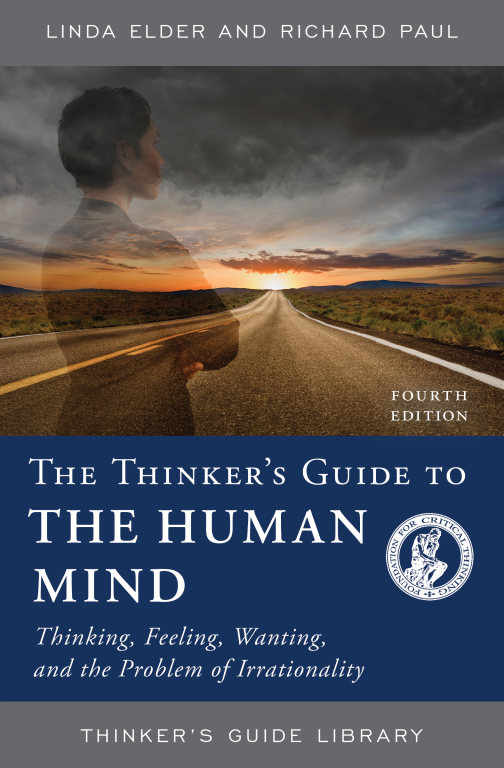
Since all human thoughts are controlled by the mind, understanding our thoughts is essential to personal and societal advancement. The Thinker’s Guide to the Human Mind delves into the core functions of the human mind to allow readers to take charge of their intellect and emotions more effectively.
Richard Paul and Linda Elder explore the basic impulses that influence our thoughts and can distract us from logical or ethical action. Exploring the dangers of egocentric and sociocentric thinking, this guide presents strategies for strengthening emotional intelligence and developing critical thinking virtues.
Linda Elder and Richard Paul’s The Thinker’s Guide to Analytic Thinking explores the practice of analyzing problems and opportunities, providing a framework for finding common denominators, inconsistencies, biases, and underlying causes. It helps readers learn to think within the logic of subjects and professions. By offering proper tools for analysis and assessment of thought, it empowers readers to address any decision with confidence.
In this guide, Richard Paul and Linda Elder empower students to take control of their own learning by asking questions, challenging assumptions, drawing upon reliable information, and exploring alternative opinions. Making intellectual work more accessible, practical, and engaging, this book fosters minds that question, probe, and can master a variety of forms of knowledge through intellectual perseverance and regular use of critical thinking skills.
The Thinker’s Guide to the Art of Socratic Questioning introduces readers to powerful methods for questioning that pinpoint underlying beliefs and systems of logic. It brings together the principles of critical thinking with Socratic questioning.
Richard Paul and Linda Elder illuminate the practicality and accessibility of Socratic questioning for revealing and solving problems in thought. Teachers, students and professionals will find in this book essential questioning strategies for reasoning within any field of study or endeavor.
Today’s instantaneous and ever-present news stream frequently presents a sensationalized or otherwise distorted view of the world, demanding constant critical engagement on the part of everyday citizens.
Fact Over Fake reveals the power of critical thinking to make sense of overwhelming and often subjective media by detecting ideology, slant, and spin at work. Building off the Richard Paul and Linda Elder framework for critical thinking, this title focuses on the internal logic of the news as well as societal influences on media while illustrating essential elements of trustworthy journalism. Includes up-to-date discussions of social media, digital journalism, and political maneuvering inside and outside the fourth estate.





